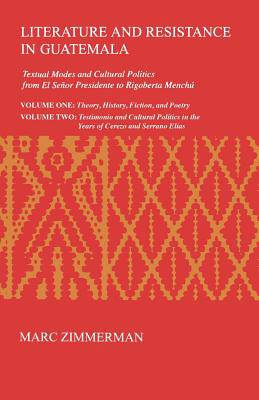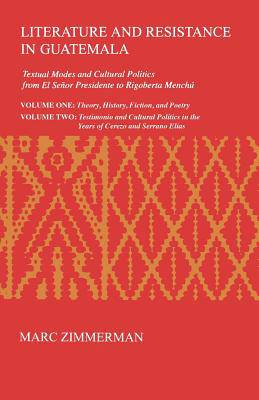
Bedankt voor het vertrouwen het afgelopen jaar! Om jou te bedanken bieden we GRATIS verzending (in België) aan op alles gedurende de hele maand januari.
- Afhalen na 1 uur in een winkel met voorraad
- In januari gratis thuislevering in België
- Ruim aanbod met 7 miljoen producten
Bedankt voor het vertrouwen het afgelopen jaar! Om jou te bedanken bieden we GRATIS verzending (in België) aan op alles gedurende de hele maand januari.
- Afhalen na 1 uur in een winkel met voorraad
- In januari gratis thuislevering in België
- Ruim aanbod met 7 miljoen producten
Zoeken
Omschrijving
What circumstances lead writers in a poor, multi-ethnic and largely illiterate country to produce a literature that both expresses and affects opposition to the regime? Who are these writers? This study examines these and other questions about the literature of resistance in Guatemala, from the days of Estrada Cabrera up to the events of May and June of 1993. Zimmerman provides the cultural context for the various modes of literary production and analysis, and identifies the currents of opposition in the nation's fiction, poetry, and testimonial writing. He details the cultural politics involving Guatemalan writers and their organizations during their years of Cerezo and Serrano-Elías, paying particular attention to the role of women and indigenous groups, Rigoberta Menchú among them. These two volumes are companion texts to Guatemala: Voices from the Silence, an "epic-collage" of writings compiled by Zimmerman and Raúl Rojas.
Specificaties
Betrokkenen
- Auteur(s):
- Uitgeverij:
Inhoud
- Aantal bladzijden:
- 824
- Taal:
- Engels
- Reeks:
- Reeksnummer:
- nr. 22
Eigenschappen
- Productcode (EAN):
- 9780896801837
- Verschijningsdatum:
- 15/10/1995
- Uitvoering:
- Paperback
- Formaat:
- Trade paperback (VS)
- Afmetingen:
- 118 mm x 247 mm
- Gewicht:
- 1025 g

Alleen bij Standaard Boekhandel
+ 271 punten op je klantenkaart van Standaard Boekhandel
Beoordelingen
We publiceren alleen reviews die voldoen aan de voorwaarden voor reviews. Bekijk onze voorwaarden voor reviews.









